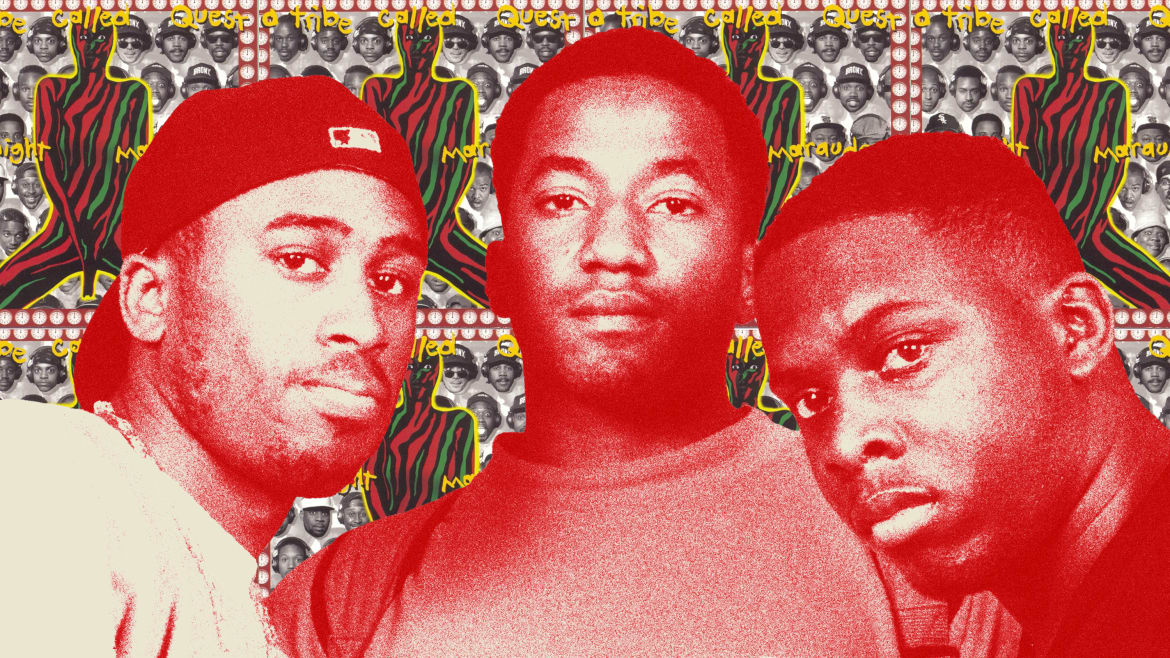Photo Illustration by Elizabeth Brockway/The Daily Beast/Getty
Nov. 9, 1993 has become a day that lives as a piece of hip-hop folklore. It’s the release date for two of the decade’s most important and impactful albums: Enter the Wu-Tang: 36 Chambers by Wu-Tang Clan, and Midnight Marauders by A Tribe Called Quest. Wu-Tang’s album was a debut, announcing the nine-man collective out of Staten Island as a soon-to-be-movement, while the third album from A Tribe Called Quest was a crucial reintroduction. Tribe was already Tribe, but the jazzy boom bap of Midnight Marauders would have a lasting impact on the group’s legacy—and on Black music of the next 30 years.
A Tribe Called Quest burst onto the scene in 1989 with the single “Description of a Fool,” before dropping their critically acclaimed debut album in 1990, People’s Instinctive Travels and The Paths Of Rhythm. In the subsequent three years, the crew of Q-Tip, Phife Dawg, and Ali Shaheed Muhammad had seen erstwhile fourth member Jarobi White actively depart for culinary school, while their cohorts in the famed Native Tongues collective saw their commercial success begin to dwindle as poppier sounds and gangstafied G-funk came to dominate hip-hop’s mainstream.
But while contemporaries like De La Soul and the Jungle Brothers struggled to sustain their respective audiences, A Tribe Called Quest was riding high. When “Award Tour,” the first single from Midnight Marauders, hit radio and video shows in the fall of 1993, it was clear that A Tribe Called Quest was still pushing into new sonic territory. The goofy humor and misplaced wallets of People’s Instinctive Travels were long gone; this was grown-ass ATCQ. And the album’s jazzy sampling was much more nuanced and organic-sounding than anything that had been done in hip-hop to that point. To be certain, jazz-rap was already fully established before the fall of ’93, but whereas the work of acts like Gang Starr used jazz samples to evoke a spirit and a feel, Tribe seemed possessed of something that felt less like reverential pastiche and more like active kinship with their influences.

